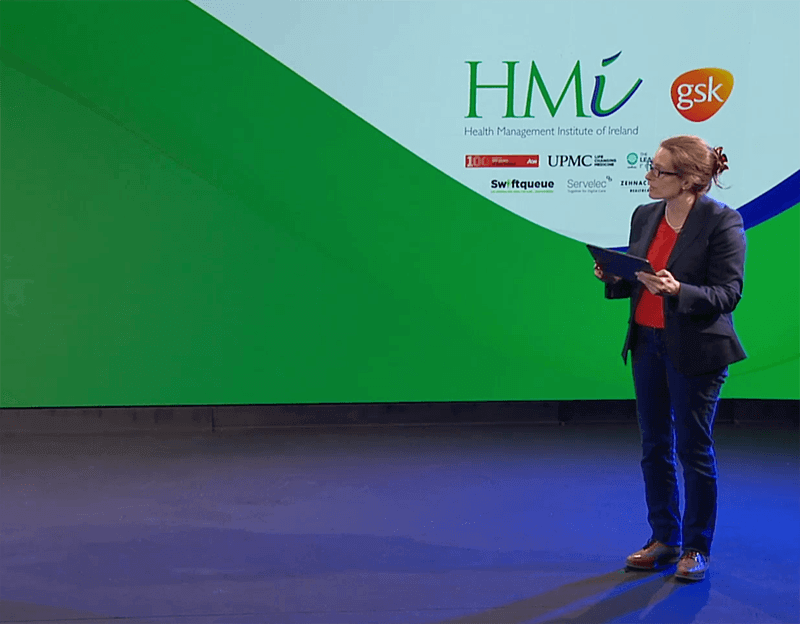Conference Moderator, Sharon Morrow says many questions had come in for Mr Reid and Mr Watt, but they would just have time for a few.

The National Electronic Health Record
Sharon – Paul I have a question on the need for an integrated IT system and the need to provide greater access to services on a virtual basis. Can you give us an update on where you are with regard to the national electronic health record?
Paul Reid – One of the challenges we have had in health is that we are waiting for the one big integrated IT solution that addresses all the legacy issues we have. That never happens in any organisation I have been in. I think what we can do is build the various systems as we are building them to strengthen our capacity to have that electronic record. Even for example, as we are going through the vaccination programme or even as we were going through the testing and tracing programme the amount of information we are capturing with every one of those transactions with the whole public now enhances our capacity for electronic health records and individual health identifiers and that is part of the data captured There is a second piece I would say about IT and I acknowledge we have a lot of legacy IT systems. During COVID, look at how we integrated some systems in a very different way. For example, GPs being able to refer through HELPLINK into testing and tracing centres, so the public could book appointments. These were not complex solutions, but from a patients perspective, it was a much easier way of dealing with the services. With the vaccination programme, people can log on to an online portal and book their appointment. That is a whole new way for the public to interact with us. Data links we have built during the pandemic will give us a whole new way of informing public health. So, I think we build the system as we go along rather than waiting for the one big solution.
Can initiatives collide with the public purse?
Sharon – Robert, New ways of working and how we use the public purse often collide with innovative approaches. Is this something the Department wants to open up over time?
Robert Watt – I think we need to look at how we can encourage innovation. Issues like having budgets allocated to results or budgets allocated for particular new initiatives can work very well, but I think we do need to be creative about it and get away from the block grant type of approach, where we actually say we are allocating money for services and for delivery of particular targets and outcomes in an innovative way. I think there is a lot of scope within the health services for using budgets in a way that can encourage better outcomes for patients and that is certainly something we are interested in. There is an awful lot of money in the health system now,€22 bn, so we always need to focus on how we can use that as well as we can and we are very supportive of any initiatives that can help us meet our objectives.
Is there a need for mandatory vaccine acceptance?
Sharon – Paul – In relation to staff who might refuse to accept the vaccine, how do you propose we manage the risk for that or is there a need for mandatory vaccine acceptance?
Paul Reid – I think it is inexcusable that health care workers would not take a COVID vaccination. We are dealing with one of the biggest health risks we have experienced. I fully accept that in a minor number of cases there will be exceptional medical reasons why people might not want to accept a vaccine. But I think there is a huge onus on anybody working in the health system, anybody working inpatient care to be vaccinated to protect themselves and to protect the vulnerable people we are caring for. I don’t believe legislation is the route for it, but that is a policy decision for the government. I think there are risk assessments we have to carry out. We have to take those health risk assessments very carefully and very seriously.
Every time we are with the Taoiseach and the Cabinet I am always asked to express back to the whole health system the sincere thanks of the Taoiseach and the Government for all you are doing and I was asked to do that again when we met this morning. We have had one of the toughest quarters the health system has ever experienced and in the middle of that, the rollout of the vaccination programme and great credit is due to everybody.

